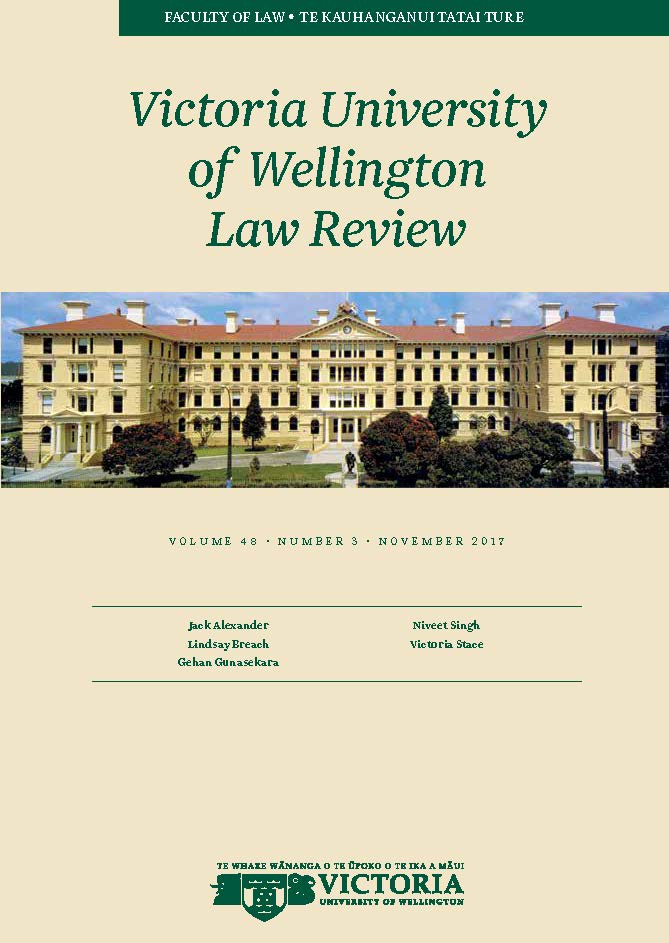The Law of Contribution – An Equitable Doctrine or Part of the Law of Unjust Enrichment?
DOI:
https://doi.org/10.26686/vuwlr.v48i3.4732Abstract
This article looks at the changes made to the equitable doctrine of contribution by the New Zealand Supreme Court in a 2016 decision, Hotchin v New Zealand Guardian Trust Co Ltd. The approach now favoured by the Supreme Court is that to establish a claim for contribution by one defendant against another, there is no need to find any greater degree of coordination between the liabilities other than that the plaintiff could pursue either defendant for its loss and either would be liable for it, in whole or in part. The underlying rationale is that by paying the plaintiff, the defendant who was pursued not only discharges itself but also discharges the other defendant's liability. If mutual discharge is established, the court then determines the amount of contribution based on what is just and reasonable in the circumstances. The Supreme Court's approach to the doctrine of equitable contribution, which is a significant change to previous law, bears similarities to the approach proposed in the leading text on unjust enrichment, raising the issue of whether a future claim for contribution could be approached using an unjust enrichment analysis.
Downloads
Downloads
Published
How to Cite
Issue
Section
License
Authors retain copyright in their work published in the Victoria University of Wellington Law Review.


